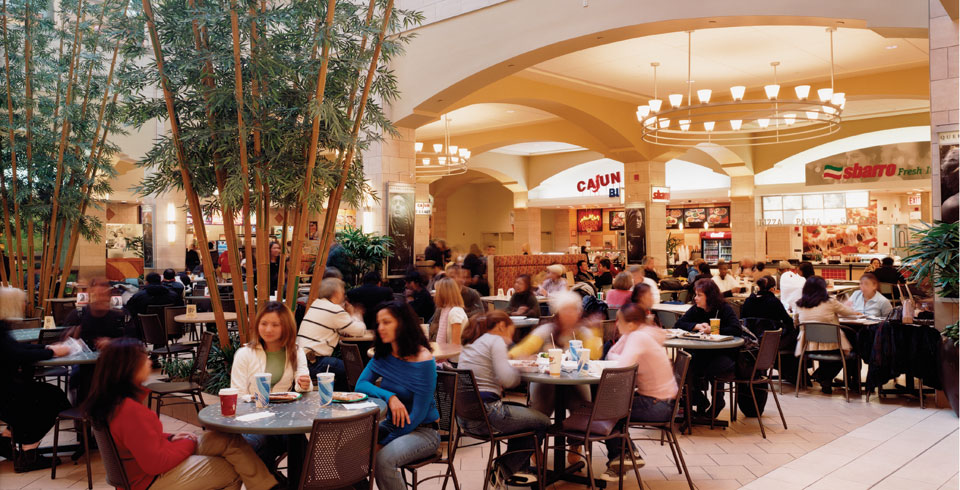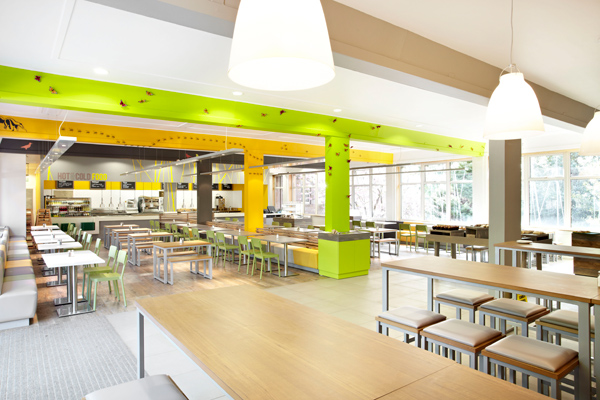The End of Retail Malls? Food Stores Taking Over Shopping Centres as The Main Attraction
Wednesday 19 July 2017
Article by Brittany Arnett
As society adapts to the changing times, forgoing maps for virtual GPS systems, landlines for Snapchat, and taxi cabs for ride-hailing services, so do super malls adapt to the changing course of retail shopping. Over the past decade, landlords of large shopping centres have signed leases with more and more food businesses, leading to the growth of restaurants, fast-food chains, and cafes in an effort to counteract the declining foot traffic to retail stores.

Because revenue is declining in retail and department stores, shopping centres are attempting to boost sales in the food sector. But with the influx of dozens of new food stores – one mall went from thirty-four to ninety-three food outlets in just three years – there is an increase in competition among food eateries without the customer traffic necessary to support it. This is leading to outstanding rent prices with little to no tangible profits to offset such high costs.
One fast-food chain, SumoSalad, is so fed up with the high rent prices that it put two of its companies into voluntary administration at the displeasure of Scentre Group, the landlord company that owns Westfield’s centres in Australia. Voluntary administration allows SumoSalad’s franchises to move out without paying the remainder of their lease, essentially forcing Scentre to cut rent or else.
The increase in food stores are not only signalling high competition and rent prices, but also a shift in the landscape of consumer retail shopping. Today, shopping centres all over Australia are being renovated to incorporate food stores all across the centre, no longer relegated to one single food court. Most shopping centres have stopped marketing their retail locations and instead are pushing their food stores as their primary attraction.
And this is not a trend to be seen solely in Australia either. Declining revenue in shopping malls across the United States has led to a trend of retailers and other stores taking on shorter leases, instead of ones that last five to eight years. This means retailers are taking on less of a risk, allowing them to exit the shopping centre in a short amount of time if necessary, i.e., if demand is too competitive or if rent prices are too high.
In fact, SumoSalad’s pressure on Scentre proved successful – the two parties are now undergoing negotiation on an agreement to produce better commercial outcomes, i.e. lower rental terms. SumoSalad hopes that this agreement will help franchises combat the loss in revenue from high competition in shopping malls and place them on better financial footing.
Prior to this negotiation, SumoSalad suggested that compensation be given to food stores when competition is amped within a shopping centre, either in the form of a promotional allowance or rental abatement. This has led to an increase in the proportion of non-performing franchises over the past two years, with some even closing entirely. If this continues, food retailers may be more reluctant to enter long-term contracts in Australian shopping malls, to which these malls could very easily enter into the same shorter-lease cycle that America is facing.

But do shorter leases indicate a declining retail economy? Not necessarily. The changing composition of shopping centres from retail stores to food stores may actually indicate a shift in the way consumers shop today. Consumers may shift their shopping habits to other outlets, namely online retailers, and yet are still prioritising where they choose to eat out. In reality, the clothing and travel sectors of retail are shifting towards online platforms at an increasing pace, while the vast majority of sales in the food sector remains through in-person transactions. So, landlords of big shopping centres may only be adapting with the times, focusing their efforts to attract food stores, that will then attract consumers, to large-scale malls.
Even the idea of online food shopping is in the works, with several companies beginning to offer individuals meal-kit and grocery delivery services right to their front doors. The online retail giant Amazon has played with this in the past, and its looming purchase of Whole Foods bricks-and-mortar stores may even alter the future of food stores , restaurants, and online food delivery services.
It may only be a matter of time to see how the landscape of retail malls will shape up – they may run the risk of retailers moving out, or turn into mega food courts instead. Or, shopping malls may face the same pressure that SumoSalad placed on Westfield, and thus may be forced into negotiating beneficial contracts in the face of food retail competition. Additionally, it may even be that food stores will migrate to online methods, causing shopping malls’ revenue to decline even further.
Brittany Arnett is currently interning at AmCham in Sydney.
For more information on how you can contribute to the AmCham blog, check out our ‘AmCham Blog Guidelines‘ or contact our office today.